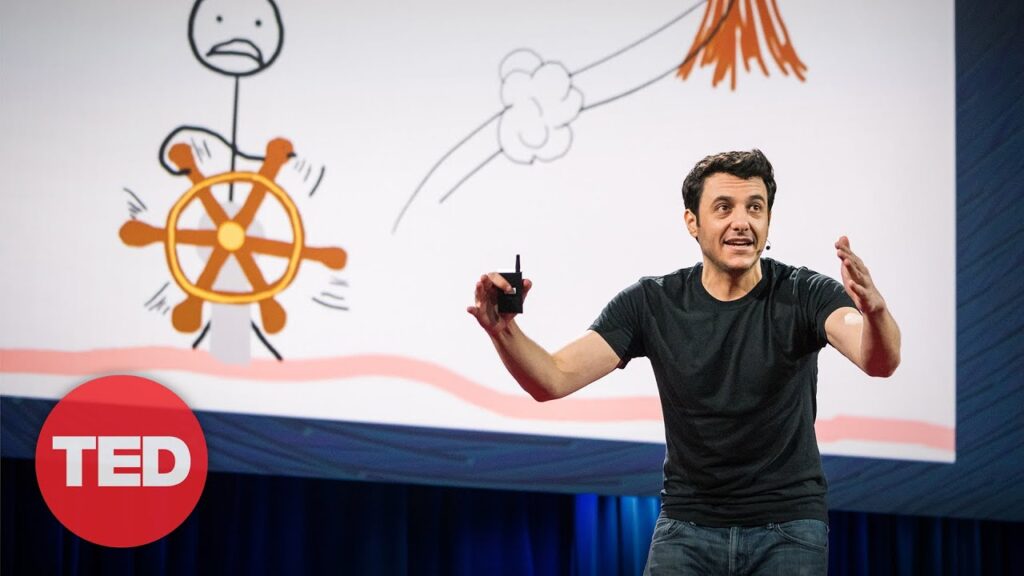Tim Urban, a renowned writer and blogger, delivered a captivating TED Talk that delves into the intricacies of procrastination. Through humor and personal anecdotes, Urban sheds light on the internal battle that procrastinators face, and the mechanisms at play. This post aims to distill Urban’s insights into actionable strategies that can help anyone overcome procrastination and boost their productivity.
The Procrastination System
Tim Urban’s journey with procrastination began in college, where he consistently delayed his work until the last minute. Despite intending to follow a logical schedule, he found himself procrastinating on every assignment. Urban illustrates this struggle with the concept of the Rational Decision-Maker and the Instant Gratification Monkey. The Rational Decision-Maker plans and foresees future benefits, while the Instant Gratification Monkey is only interested in activities that are easy and fun, ignoring long-term consequences. This internal tug-of-war often leaves procrastinators in a state of paralysis, unable to start tasks until it’s almost too late.
The Role of the Panic Monster
Urban introduces the Panic Monster, a critical player in the procrastination system. The Panic Monster awakens when deadlines loom dangerously close, triggering a sense of urgency that propels the procrastinator into action. For instance, Urban recounts writing a 90-page thesis in 72 hours, fueled by the Panic Monster’s fear of failure and public embarrassment. This frantic burst of productivity highlights how the Panic Monster can temporarily override the Instant Gratification Monkey, allowing the Rational Decision-Maker to regain control.
The Two Types of Procrastination
Urban distinguishes between two types of procrastination: short-term, deadline-driven procrastination and long-term procrastination without deadlines. Short-term procrastination is managed by the Panic Monster, as the impending deadlines force action. However, long-term procrastination, which affects goals without clear deadlines, such as career aspirations or personal well-being, lacks this trigger. The absence of the Panic Monster in these scenarios leads to perpetual delays, causing significant long-term unhappiness and regret. This type of procrastination is often more detrimental, as it can prevent individuals from pursuing their dreams and improving their lives.
Overcoming Procrastination
To combat procrastination, Urban suggests several practical strategies:
- Set Clear, Manageable Deadlines: Break larger tasks into smaller, time-bound segments to create a sense of urgency.
- Break Tasks into Smaller Steps: Simplify complex projects into smaller, more manageable tasks to reduce overwhelm.
- Create a Structured Environment: Minimize distractions by organizing your workspace and using tools like time-tracking apps.
- Stay Accountable: Share your goals with friends or colleagues who can help keep you on track.
Additionally, visualizing long-term goals and their benefits can help the Rational Decision-Maker assert more control. Regularly reviewing progress and adjusting plans as needed can also keep procrastination at bay.
Final Thoughts
Tim Urban’s TED Talk offers a humorous yet profound exploration of procrastination, providing valuable insights into the procrastinator’s mind. By understanding the roles of the Rational Decision-Maker, the Instant Gratification Monkey, and the Panic Monster, we can develop strategies to manage and overcome procrastination. Implementing these actionable steps can lead to improved productivity, reduced stress, and a greater sense of accomplishment. Remember, the journey to overcoming procrastination begins with recognizing its presence and taking the first step towards change.
You Might Also Like:
- Discover Your Next Great Read: New York Times Best-Selling Books
- 7 Must-Read Books Before Turning 25
- Crack the Code to Wealth: “The Algebra of Wealth” by Scott Galloway
- Discovering True Wealth in The Book ‘The Wealth Money Cannot Buy’ by Robin Sharma (Book Summary)
- Book Summary: Just the Good Stuff by Jim VandeHei – Redefining Success
- 7 Must-Read Books for Money Management
